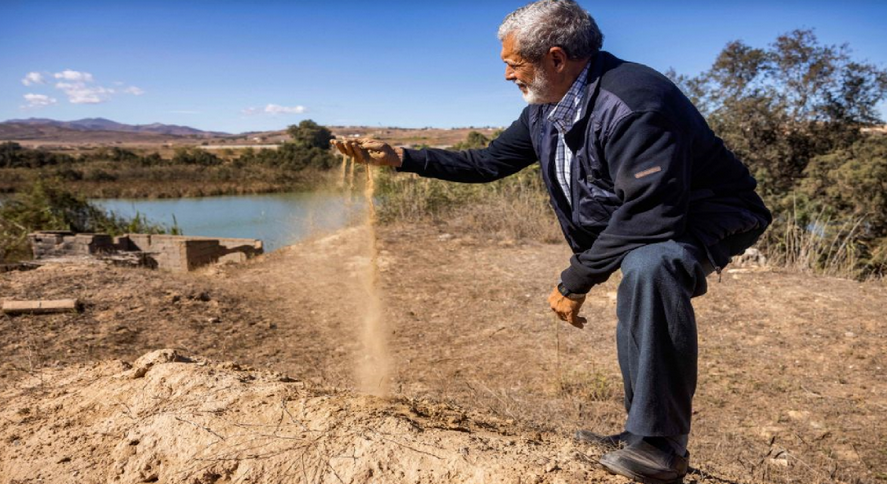Drought hits Morocco’s vitally important agricultural sector
Published on 2022 February 24, Thursday Back to articles
Drought hits Morocco’s agricultural sector
Morocco is facing what looks set to be the worst drought in 30 years which has prompting one official in the agricultural sector to describe the situation as ‘catastrophic.’
This year’s rainfall is 64% less than average and the reservoirs are already low and on average are only about 33.2% full this month. This is considerably lower than this time last year when they were just under 50% full. In some areas, such as Sous, ground water reservoirs are almost depleted and in Doukkala-Abda the Al-Massira reservoir is only at 6.7% capacity.
According to one head of a seed-trading association, the situation is so bad that in the most rain-dependent areas, farmers have refrained from sowing crops, while those who have done so are rapidly giving up any hope of harvesting them.
This extreme drought is a calamity for the Kingdom’s agricultural sector which accounted for 17% of GDP in 2021. According to central bank governor Abdellatif Jouahri the lack of rainfall means that economic growth will be seriously curtailed and may not exceed 3.5% this year rather than the 7% that was originally projected.
Furthermore, the exceptionally dry weather means that the state will be forced to increase grain imports and subsidies. It is expected that grain imports will rise from eight million tonnes in 2021 to ten million tonnes this year. This will place further strains on the economy given rising global grain prices, which are being aggravated by tensions between Russia and Ukraine.
The government has pledged not to pass these particular increases onto its citizens. In November it lifted import taxes on soft wheat which has a low gluten content and makes up 80% of the Kingdom’s grain consumption. It also offered compensation on its imports which will remain in place until the end of this month. However, while the price of bread may remain constant, the Kingdom will feel the added burden.
Royal Diwan’s US$1 billion support package
In a bid to mitigate the effects, the Royal Diwan has launched a US$1 billion support package. This is to be used for a range of measures including subsidising animal feed, implementing more efficient irrigation techniques, and providing financial support to the worst affected farmers.
The Interior Ministry is seeking to regulate and restrict water usage. This month, Interior Minister Abdelouafi Laftit instructed all walis and governors of the prefectures and provinces to launch campaigns to raise awareness on water usage and to take steps to minimise water wastage in the production and distribution process. He also ordered local authorities to restrict water flows and ban the watering of green spaces. There is also a ban on washing public spaces and roads with conventional water sources or underground water reserves.
While these measures will certainly help, the drought will still be a heavy toll on Morocco, and on the government, at a time when it can ill-afford to be burdened with more pressures.
This excerpt is taken from Morocco Focus, our monthly intelligence report on Morocco. Click here to receive a free sample copy.The February 2022 issue of Morocco Focus also includes the following:
Foreign Relations
- Rabat continues to forge closer relations with Israel
- Implications
Governance
- Cost of living protests sweep the Kingdom
- Well tragedy grips nation but also raises questions
Security
- Morocco creates new military zone…
Economy
- Drought hits vitally important agricultural sector



